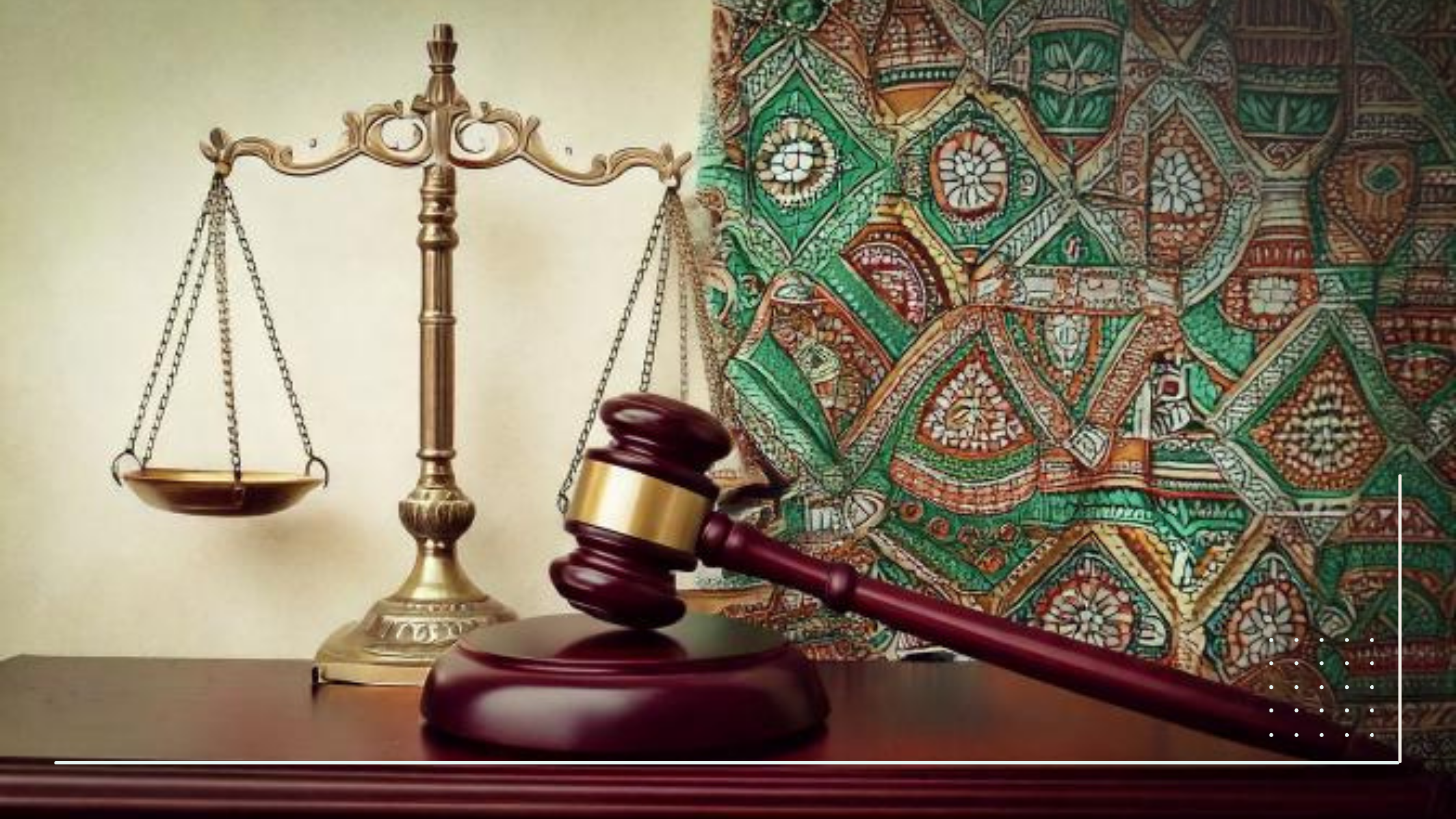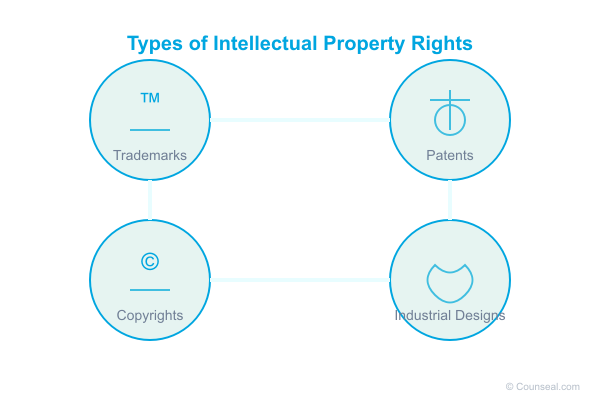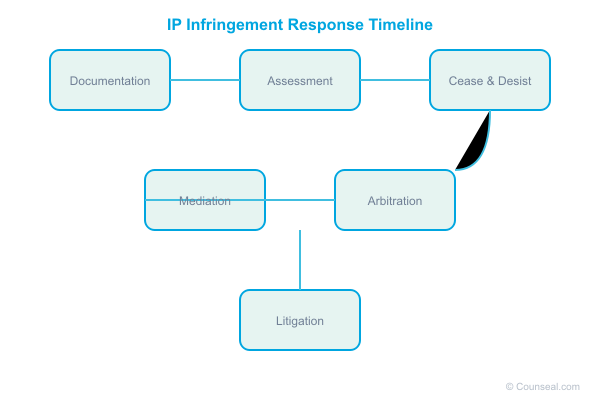How to Respond to Intellectual Property Infringement in Nigeria

by Counseal Team
Updated May 29, 2025

In Nigeria’s dynamic business landscape, protecting your intellectual property (IP) has become increasingly crucial. Whether you’re an entrepreneur, creative professional, or business owner, understanding how to respond to IP infringement can safeguard your innovations and maintain your competitive edge.
In Nigeria’s dynamic business landscape, protecting your intellectual property (IP) has become increasingly crucial. Whether you’re an entrepreneur, creative professional, or business owner, understanding how to respond to IP infringement can safeguard your innovations and maintain your competitive edge.
Understanding Intellectual Property Infringement
Intellectual property infringement occurs when someone uses, reproduces, or exploits your IP without proper authorization. In Nigeria, this can manifest in various forms, from software piracy to counterfeit goods. Understanding what constitutes infringement is your first line of defence in protecting your business assets.
Why Protecting IP Rights Matters
Your intellectual property represents more than just ideas—it’s the foundation of your business’s value proposition. Protecting your IP:
- Secures your competitive advantage in the market
- Enhances your business’s value to potential investors
- Provides legal recourse against unauthorized use
- Maintains your brand’s integrity and reputation
Types of Intellectual Property Rights in Nigeria
Trademarks
Trademarks protect distinctive signs, designs, or expressions that identify your products or services. In Nigeria, trademark registration falls under the Trademarks Act, providing exclusive rights to use your mark in commerce.
Patents
Patents protect new inventions and technological innovations. The Patents and Designs Act governs patent protection in Nigeria, giving inventors exclusive rights to their innovations for a specified period.
Copyrights
The Copyright Act safeguards original creative works, including:
- Literary works
- Musical compositions
- Artistic creations
- Software and digital content
- Architectural designs
Industrial Designs
Industrial designs protect the aesthetic aspects of products, registered under the Patents and Designs Act. This protection covers unique shapes, patterns, and ornamental features of commercial items.

Identifying IP Infringement
Common Types of Infringement
- Unauthorized use of trademarks
- Counterfeit products in the market
- Unlicensed software reproduction
- Plagiarism of creative works
- Patent infringement in manufacturing
Signs of Infringement
Watch for these key indicators:
- Market confusion among customers
- Unauthorized product reproductions
- Similar branding or design elements
- Counterfeit versions of your products
- Unauthorized use of your content
Documenting the Infringement
Collecting Evidence
Maintain comprehensive records of:
- Screenshots of online infringement
- Physical samples of counterfeit products
- Documentation of market confusion
- Communication records
- Financial impact assessment
Legal Documentation Requirements
Ensure your evidence includes:
- Dated photographs or screenshots
- Witness statements
- Expert assessments
- Financial loss calculations
- Market impact analysis
Response Strategies
Immediate Actions
- Document all instances of infringement
- Secure additional IP protection if needed
- Consult with IP legal specialists
- Assess the scope of infringement
- Calculate potential damages
Legal Options
Consider these approaches:
- Cease and desist letters
- Mediation proceedings
- Arbitration
- Court litigation
- Criminal prosecution

Civil Remedies
Available Legal Actions
- Injunctive relief
- Monetary damages
- Account of profits
- Destruction of infringing materials
- Public apologies
Criminal Remedies
Serious IP violations may warrant criminal prosecution, particularly in cases of:
- Large-scale counterfeiting
- Willful trademark infringement
- Copyright piracy
- Trade secret theft
Alternative Dispute Resolution
Mediation
Mediation offers a cost-effective approach to resolving IP disputes through:
- Neutral third-party facilitation
- Confidential proceedings
- Flexible solutions
- Preserved business relationships
Arbitration
Arbitration provides:
- Binding decisions
- Expert arbitrators
- Confidential proceedings
- Faster resolution than litigation
Preventive Measures
Best Practices
- Register all eligible IP rights
- Implement monitoring systems
- Maintain proper documentation
- Train employees on IP protection
- Regular market surveillance
Risk Management
- Conduct regular IP audits
- Update protection strategies
- Monitor competitor activities
- Maintain confidentiality agreements
- Implement cybersecurity measures
Conclusion
Protecting your intellectual property in Nigeria requires vigilance, prompt action, and strategic thinking. By understanding your rights and available remedies, you can effectively respond to infringement and safeguard your business assets. For professional assistance with IP protection and infringement issues, visit counseal.com/start.





